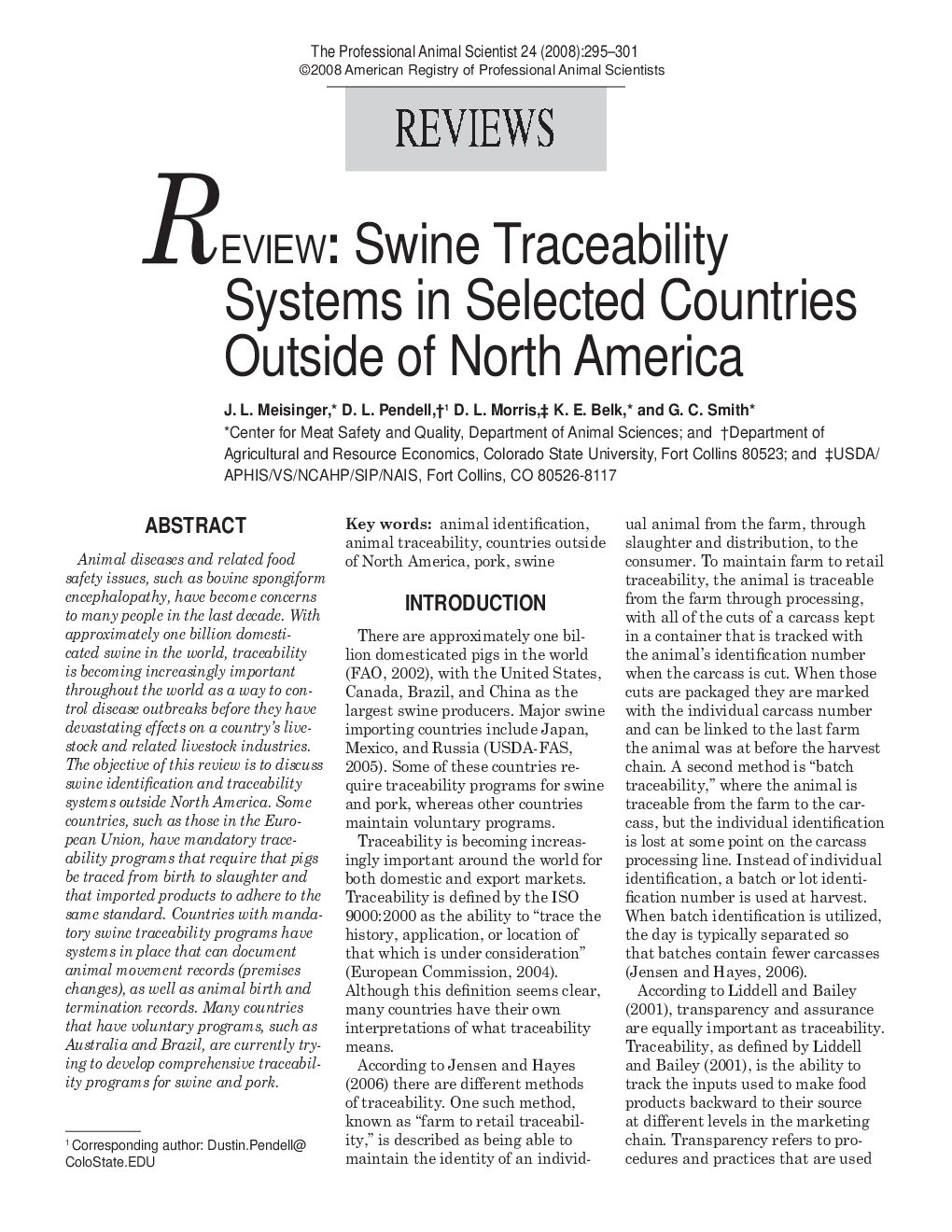| Article ID | Journal | Published Year | Pages | File Type |
|---|---|---|---|---|
| 2454334 | The Professional Animal Scientist | 2008 | 7 Pages |
Abstract
Animal diseases and related food safety issues, such as bovine spongiform encephalopathy, have become concerns to many people in the last decade. With approximately one billion domesticated swine in the world, traceability is becoming increasingly important throughout the world as a way to control disease outbreaks before they have devastating effects on a country's livestock and related livestock industries. The objective of this review is to discuss swine identification and traceability systems outside North America. Some countries, such as those in the European Union, have mandatory traceability programs that require that pigs be traced from birth to slaughter and that imported products to adhere to the same standard. Countries with mandatory swine traceability programs have systems in place that can document animal movement records (premises changes), as well as animal birth and termination records. Many countries that have voluntary programs, such as Australia and Brazil, are currently trying to develop comprehensive traceability programs for swine and pork.
Keywords
Related Topics
Life Sciences
Agricultural and Biological Sciences
Animal Science and Zoology
Authors
J.L. Meisinger, D.L. Pendell, D.L. Morris, K.E. Belk, G.C. Smith,
